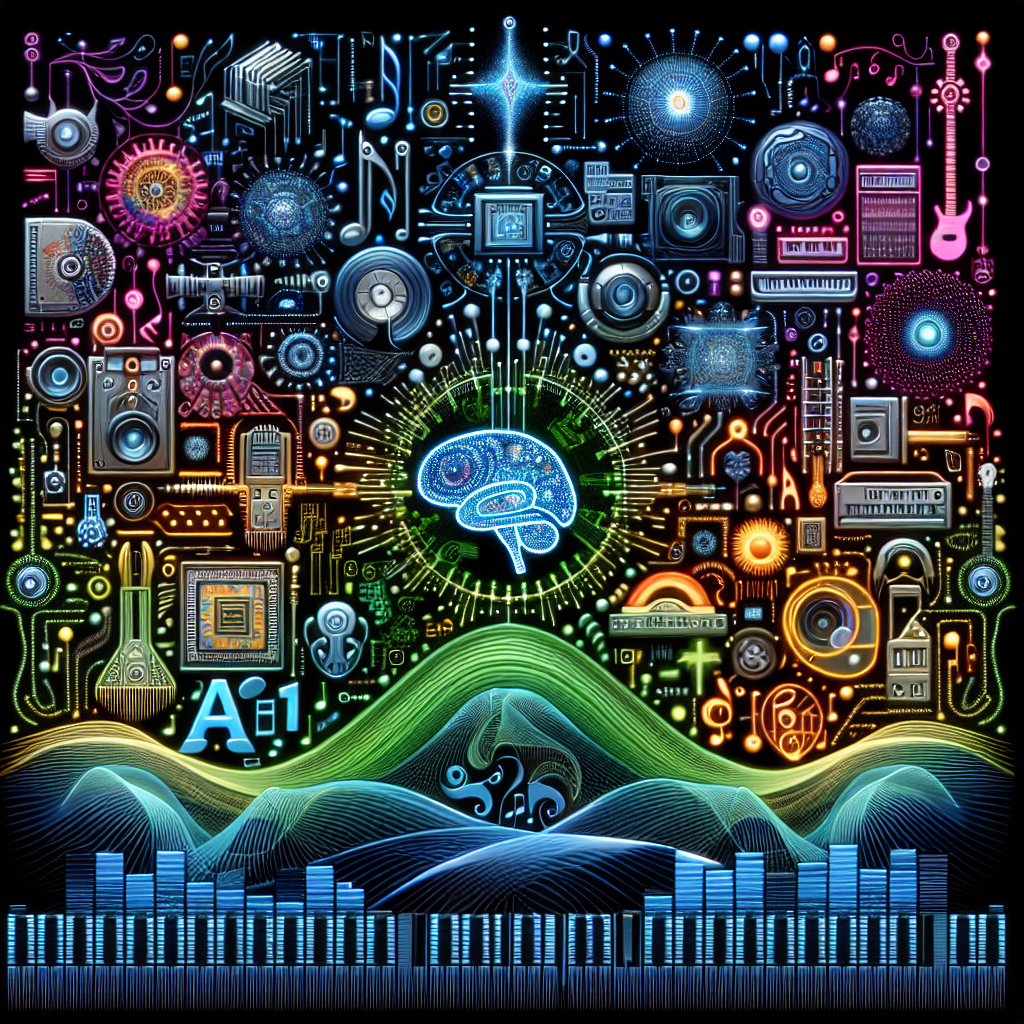Artificial Intelligence (AI) has revolutionized many aspects of our lives, from healthcare to finance to entertainment. One of the most exciting applications of AI is in the realm of music and sound design. AI has the ability to analyze vast amounts of data and create unique and innovative soundscapes that push the boundaries of traditional music composition.
Exploring new soundscapes with AI involves using machine learning algorithms to generate music, sound effects, and other audio elements. These algorithms can analyze existing music and sound libraries to identify patterns and trends, which can then be used to create new and original compositions. AI can also be used to manipulate and remix existing audio files in new and interesting ways, allowing for endless possibilities in sound design.
One of the key advantages of using AI for sound exploration is its ability to generate music and audio that is truly unique and unexpected. Traditional music composition often relies on familiar chord progressions and melodies, but AI algorithms can break free from these conventions and create music that is truly original. This can lead to the discovery of new genres and styles of music that would be difficult to achieve through traditional means.
Another benefit of using AI for sound exploration is its speed and efficiency. AI algorithms can analyze and process large amounts of data in a fraction of the time it would take a human composer or sound designer. This allows for rapid experimentation and iteration, leading to faster innovation and creativity in music production.
AI can also be used to enhance the creative process for human musicians and sound designers. By providing new and unexpected ideas, AI can inspire artists to think outside the box and explore new creative avenues. AI can also assist in the production process by automating repetitive tasks, allowing artists to focus on the more creative aspects of music composition.
One of the most exciting developments in AI sound exploration is the use of generative adversarial networks (GANs). GANs are a type of AI algorithm that consists of two neural networks – a generator and a discriminator – that work together to create new and realistic audio content. The generator creates new audio samples, while the discriminator determines whether the samples are real or generated. This iterative process results in the generation of high-quality audio that sounds indistinguishable from human-created music.
FAQs
Q: How does AI generate music and soundscapes?
A: AI uses machine learning algorithms to analyze existing music and sound libraries, identify patterns and trends, and create new and original compositions. AI can also manipulate and remix existing audio files in new and interesting ways.
Q: What are the benefits of using AI for sound exploration?
A: AI can generate music and audio that is truly unique and unexpected, leading to the discovery of new genres and styles of music. AI is also fast and efficient, allowing for rapid experimentation and iteration in music production.
Q: How can AI enhance the creative process for human musicians and sound designers?
A: AI can provide new and unexpected ideas to inspire artists to think outside the box and explore new creative avenues. AI can also automate repetitive tasks, allowing artists to focus on the more creative aspects of music composition.
Q: What are generative adversarial networks (GANs) and how are they used in AI sound exploration?
A: GANs are a type of AI algorithm that consists of two neural networks – a generator and a discriminator – that work together to create new and realistic audio content. GANs are used to generate high-quality audio that sounds indistinguishable from human-created music.
In conclusion, AI has the potential to revolutionize the way we explore new soundscapes and create music. By leveraging the power of machine learning algorithms, AI can generate music and soundscapes that are truly unique and innovative. From analyzing existing music libraries to creating new compositions with generative adversarial networks, AI is pushing the boundaries of traditional music composition and opening up new creative possibilities for artists and sound designers. The future of music production is bright with the integration of AI technology, and we can expect to see even more exciting developments in the exploration of new soundscapes in the years to come.

